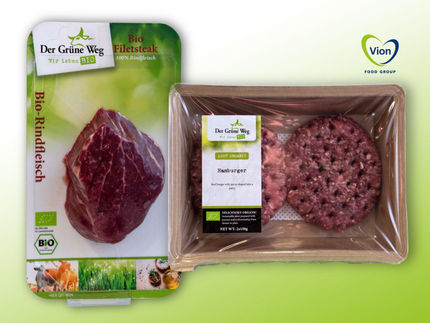Nestlé launches bio-based lids and scoops made from renewable resource
Nestlé announced today that it will introduce bio-based lids and scoops made from sugar cane and its byproduct for a range of its nutrition products for infants and children.

Nestlé launches bio-based lids and scoops made from renewable resource
Nestlé
The main advantage of these bio-based plastics is that they are made from a renewable plant material that can be continually replenished and that absorbs carbon dioxide from the atmosphere. In addition, this packaging helps Nestlé reduce its use of fossil-based plastics.
Nestlé Nutrition's NAN infant formula packed in the new packaging materials was introduced in Hong Kong in 2020 and will be available in other markets globally from 2021, including for other brands such as BEBA and GUIGOZ.
Wyeth Nutrition is launching the new bio-based packaging for its brands SMA, LITTLE STEPS, S-26 and ILLUMA.
Nestlé Health Science is also introducing the new packaging material for its Althéra, Alfaré, Alfamino, Modulen and Peptamen Junior brands, which are part of its global range of pediatric food for special medical purposes.
"Nestlé continues to push the boundaries of science to provide nutritional solutions for children, and we are putting that same passion into pioneering new packaging that is good for our planet," said Thierry Philardeau, Head of Nestlé Nutrition. "Families rely on us for support in the first 1,000 days of life — a critical time to shape a healthier and more prosperous future — and we are proud to be the first global brand to offer them solutions that maximize the use of renewable resources."
Greg Behar, CEO of Nestlé Health Science, said, "It is our responsibility to our customers and to our planet to innovate on packaging materials that contribute to a more sustainable future. We are pleased that Nestlé Health Science’s pediatric range is our first product group to include the new bio-based lids and scoops: new solutions for a new generation."
The lids and scoops are made from 66% and 95% sugar cane respectively. They are certified as plant-based packaging and are recyclable in countries that have recycling facilities for polyethylene (PE). They have the same properties and functionalities as conventional plastic ones, without compromising the high level of hygiene and freshness required. The bio-based lids and scoops complement the tin can which is metal-based and is the most recycled material in the world. This innovation is one of the many solutions Nestlé is working on to address the issue of packaging waste.
Ryan Carvalho, Head of R&D and Chief Medical Officer for Nestlé Nutrition said, "The development of innovative sustainable packaging solutions plays an important role in our journey to net-zero. Bio-based packaging from sugar cane is an excellent example of how we can make good use of plant-based raw materials that are renewable to develop better alternatives to traditional plastic while ensuring that our products maintain a high level of safety and quality."
Nestlé is a founding member of the Bioplastics Feedstock Alliance that aims to encourage production of bioplastics feedstocks in an environmentally responsible, socially beneficial and economically viable manner.
Most read news
Topics
Organizations
Other news from the department business & finance

Get the food & beverage industry in your inbox
By submitting this form you agree that LUMITOS AG will send you the newsletter(s) selected above by email. Your data will not be passed on to third parties. Your data will be stored and processed in accordance with our data protection regulations. LUMITOS may contact you by email for the purpose of advertising or market and opinion surveys. You can revoke your consent at any time without giving reasons to LUMITOS AG, Ernst-Augustin-Str. 2, 12489 Berlin, Germany or by e-mail at revoke@lumitos.com with effect for the future. In addition, each email contains a link to unsubscribe from the corresponding newsletter.






























































